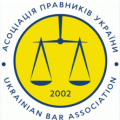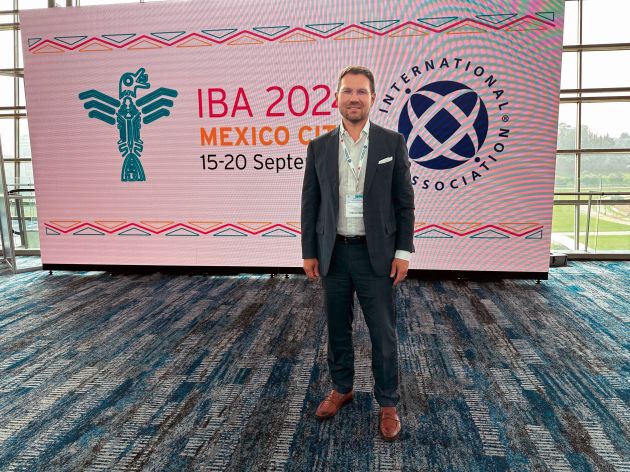 |
Маєте Телеграм? Два кліки - і ви не пропустите жодної важливої юридичної новини. Нічого зайвого, лише #самасуть. З турботою про ваш час! |
From September 15 to 20, 2024, Mexico City hosted the International Bar Association's Annual Conference, bringing together leading legal professionals from around the world to discuss critical issues facing the legal field. Topics included the evolution of the legal profession, human rights, anti-corruption efforts, and the impact of emerging technologies on law. Among the attendees was a delegation from Ukraine. Mykola Stetsenko, President of the Ukrainian Bar Association and Managing Partner at AVELLUM, provided insights into the conference discussions, especially highlighting Ukraine’s presence and the ongoing conflict with Russia as key subjects. Other Ukrainian delegates also shared their impressions of the event.
— Mr. Stetsenko, what mission did you set for yourself attending the IBA Annual Conference 2024?
— My primary mission at this year's conference was to represent the Ukrainian legal community internationally. In the context of Russia's illegal aggression against Ukraine, the voice of Ukrainian lawyers must be heard and taken into account in global discussions. It is important for me to inform my colleagues from other countries about the horrific violations of international law that our country has faced and to emphasize the need for joint actions to protect the rule of law and bring Russia to justice for its crimes.
In addition, I sought to place the problems faced by Ukrainian legal professionals in the broader context of global legal challenges. This includes the role of women in the legal profession, which is an important topic for discussion not only in Ukraine but also in the world. International cooperation in discussing these issues will help us to better understand how to develop the legal profession, ensuring equal rights and opportunities for all lawyers, regardless of gender. This also applies to the role of artificial intelligence and the future of the legal profession in general.
In conclusion, I would like to say that an equally important mission for me has been to disseminate balanced information to the international legal community about the progress of reforms in Ukraine, including successes in the judiciary, the fight against corruption and the improvement of the investment climate in Ukraine. I often hear old Russian narratives about how bad things are in Ukraine. But we know this is not true, and we should speak about it more.
— What were the key topics discussed at this year's IBA conference?
— This year's IBA conference highlighted several key topics that were actively discussed among the participants. One of them was the role of lawyers in the modern world, where lawyers are increasingly acting not only as defenders of the law, but also as important social actors responsible for maintaining the rule of law and protecting democratic values in today’s difficult conditions.
The impact of artificial intelligence on the legal profession was also discussed. Automation and the use of the latest technologies, including AI, in the legal sphere pose new challenges to lawyers. They discussed how to balance innovations with maintaining human control, especially in the context of ethical and legal issues.
Considerable attention was also paid to the ESG approach (environmental, social and governance), which is becoming increasingly important for both companies and law firms. This is not only a matter of corporate responsibility, but also an impact on legal practice, as lawyers are increasingly working on issues of sustainable development, social justice and transparency of governance.
Gender equality was another key topic. The conference actively discussed the importance of ensuring equal rights and opportunities for women in the legal profession, which is a global issue that requires joint efforts.
The challenges faced by future generations of lawyers were also discussed. The rapid development of technology, changing labor market structure and social changes affect how young lawyers should prepare for the future, where traditional approaches may no longer be relevant.
 Timur Bondaryev, Founding and Managing Partner at Arzinger Law Firm
Timur Bondaryev, Founding and Managing Partner at Arzinger Law Firm
"As always, the IBA Annual Conference is a very important event for the entire global legal community. In addition to the areas of traditional interest to me as a practicing lawyer, such as antitrust, international transactions and arbitration, I devote a lot of time to the activities of the IBA Law Firm Management Committee (LFMC), of which I have been an officer for several years. The Committee brings together leaders and partners of law firms of various sizes from around the world and is an excellent platform for discussing issues that are relevant and urgent for the entire industry. Interestingly, despite the very high level of diversification of the firms represented, the interests and topics for discussion always coincide, which indicates a significant level of globalization of the industry.
This year, artificial intelligence and its impact on the viability of the traditional law firm business model was an important topic of discussion. Each law firm has its own approach in this regard: the largest players invest in AI-related projects on their own, allocating significant budgets and actually competing with large software companies that specialize in developing and implementing relevant solutions. A significant number of law firms actively monitor global trends in this area, use solutions available on the market and integrate them into their own business processes. There is no single approach, nor is there a single vision of which approach is more correct.
Other topics that have been actively and comprehensively discussed at each annual conference in recent years are remote work and partnership models. The discussions in these areas are endless, very valuable, and will surely be in great demand for decades to come.
Finally, cooperation in the defense sector was a big topic of discussion. Clients of many global law firms are very interested in establishing cooperation with Ukraine in this sector, and I personally spent many hours discussing with my colleagues the opportunities for investment in Ukraine's defense sector."
— Which panel discussions did you participate in at the conference, and what issues were addressed?
— I took part in three panel discussions at this year’s conference. The first panel focused on the role of women in the legal profession, as well as bullying and sexual harassment. During this discussion, we addressed topics of gender equality, the challenges women face in the legal field, and ways to support their professional growth. It was essential to highlight the need for more active engagement of women in leadership roles and to create conditions for their equal development within the legal profession.
In this session, I presented the findings of a recent survey conducted by the Ukrainian Bar Association (UBA). The report from this survey will be published soon. Seeing Ukraine’s results in the context of other countries from various continents that have conducted similar surveys was crucial for us. It was also fascinating to compare best practices in supporting women’s growth in the legal profession. I’m sincerely grateful to everyone who participated in the survey and hope this marks the beginning of further changes and support for women in law. Special thanks go to Anna Babych, UBA Board member, for initiating the survey, and Viktoriia Krasnova, UBA Executive Director, for the effective implementation of the survey and preparation of the report.
The second panel I participated in focused on foreign investment in agricultural land, a particularly relevant topic for Ukraine given the opening of the land market and the potential for attracting foreign capital. In this session, we discussed a range of important topics related to this complex issue, including:
–– national security and sovereignty concerns associated with foreign ownership of land;
–– the need to preserve agricultural heritage and traditional farming communities;
–– risks related to land speculation and the potential threat of “land grabbing” by foreign investors;
–– economic imbalances and challenges that local farmers may face due to the influence of large foreign investors;
–– issues of long-term sustainable development and the environmental impact of foreign land ownership;
–– food security and protection of local farming communities;
–– finding a balanced approach between attracting foreign investment and safeguarding the interests of the local population.
The discussion was vibrant and enriched with diverse global perspectives. We recognized that this issue is highly complex worldwide and continues to evolve, with significant implications for rural communities, economies, and global food security.
The third panel, dedicated to the rule of law, sparked an active discussion on the challenges Ukraine faces amid the war. I raised the importance of international support in strengthening Ukraine's legal system and the role of lawyers in restoring justice and protecting human rights in conflict situations.
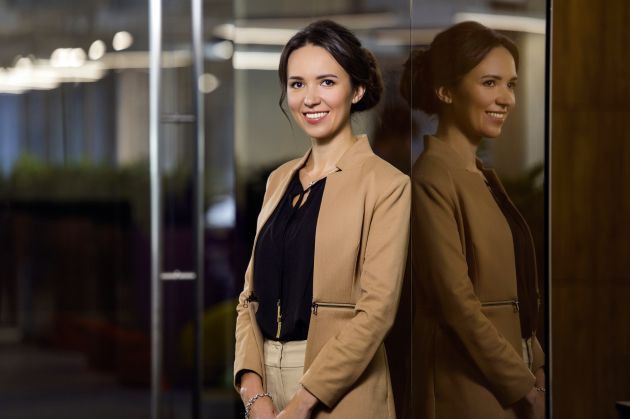 Kateryna Gupalo, Partner, Attorney at Law, Co-Head of Criminal Law and Business Protection practices at Arzinger Law Firm
Kateryna Gupalo, Partner, Attorney at Law, Co-Head of Criminal Law and Business Protection practices at Arzinger Law Firm
"The IBA Annual Conference is a large-scale event: there are many presentations on different topics at the same time. This year I had the opportunity to speak at a session dedicated to sanctions. It was important for me not only to present the specifics of Ukrainian sanctions regulation, but also to demonstrate through my personal experience why compliance with sanctions is important — it is not only about the need to follow the law, the risks of liability, but also about the fact that it is actually a matter of survival for us. Because Russia's ability to continue importing Western components for weapons production directly affects its ability to continue its armed aggression and air attacks on cities deep into Ukraine."
–– Please tell us more about the Rule of Law Forum. What topics were in the focus of its participants' attention?
–– The Rule of Law Forum was one of the central events of the conference. Participants discussed a number of important topics of global importance for the development of legal systems and the preservation of democratic institutions and principles. One of the main topics was strengthening the rule of law in the face of global challenges, such as armed conflicts, political instability and threats of authoritarianism.
Particular attention was paid to the role of lawyers in ensuring fair trial, access to justice and protection of human rights. An important part of the discussion was the independence of judicial systems and the need for international cooperation to counter human rights violations and ensure fair justice. The topic of Russia's international legal responsibility for crimes of aggression in Ukraine was also touched upon.
In the context of Ukraine, they also touched upon the challenges facing the country in the context of war and how legal professionals can contribute to the restoration of justice and the maintenance of the rule of law in difficult circumstances. One of the important aspects of the discussion was how the international community can help Ukraine to ensure transparent trials, in particular of Russian criminals. The issue of protecting the rights of citizens, especially in the context of aggression and war crimes, was also raised. Thus, the participants emphasized the need to regulate LGBTIQ+ rights in Ukraine as soon as possible, both in the context of Ukraine's commitments within the Council of Europe and in the context of the war.
–– What issues did you emphasize in your speech at the Rule of Law Forum?
–– In my speech at the Rule of Law Forum, I focused on three key topics: justice for war crimes, the fight against corruption in Ukraine, and Russian aggression against Ukraine.
First, I have covered the issue of war crimes investigations. Ukraine is in a unique position where Ukrainian courts are forced to consider war crimes cases in the context of an ongoing war. This creates unprecedented challenges for the justice system.
Over the course of 12 months (two phases of the project), our team of 20 experts monitored war crimes trials in courts in Kyiv and 10 oblasts. We used IBAHRI's trial-monitoring guidelines as the basis for our methodology.
The results of the monitoring showed the uniqueness of the processes taking place during the war. Despite the lack of previous experience in handling such cases, Ukrainian courts have mostly ensured due process without systematic violations of human rights or fair trial principles.
At the same time, the monitoring revealed several important challenges. First, there is an urgent need to create a unified digital database to simplify the recording and access to information on war crimes. Secondly, the issue of informing suspects and accused persons about court hearings remains problematic, as official state channels do not always provide effective communication. Thirdly, the heavy workload of individual courts and the lack of judges threaten to delay the consideration of cases, which violates the right to a reasonable time limit for legal proceedings. This is a systemic problem that requires urgent solutions.
In addition, 98% of cases are heard in absentia, which underscores the difficulty of ensuring a fair trial in a time of war. There are problems with access to legal aid, as well as with the safety of lawyers involved in such cases.
Despite the absence of systemic human rights violations and a noticeable improvement in the quality of court decisions in recent months, individual cases may still indicate potential risks to justice in times of war.
I then turned to the topic of the anti-corruption fight in Ukraine. In recent years, the anti-corruption infrastructure has been built and strengthened, and many top officials have been brought to justice. We have learned valuable lessons from previous reforms, especially regarding the balance between the speed of change and the involvement of civil society. We also notice that sometimes there are challenges related to bias on the part of the media and civil society. Within the UBA, we are actively working to deepen the dialogue between journalists, judges and lawyers.
I concluded my speech by addressing the topic of Russian aggression. I think it is important for the international community to understand the reasons and motivation for this war. I would venture to suggest that this war has a unique reason — the struggle for Russia's historical heritage, for its imperialism. That is why the level of atrocities we are witnessing is reminiscent of medieval times. In the end, I expressed my belief that good will triumph over evil, and the rule of law will be restored in the world.
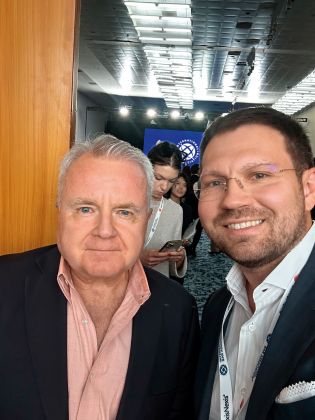 –– In general, how much attention was paid to Ukraine and the war that Russia is waging against us at the conference?
–– In general, how much attention was paid to Ukraine and the war that Russia is waging against us at the conference?
–– Ukraine and the war waged against us by Russia received a lot of attention at this year's IBA conference. In addition to panel discussions on war crimes justice and Russian aggression, there were several important events where this topic was in the spotlight.
In particular, IBA Executive Director Mark Ellis conducted two major interviews that attracted large audiences. The first was with former U.S. Ambassador to Russia John Sullivan, where they discussed his experience in Russia, his thoughts on the causes of the war, and his new book, which reveals aspects of working in the diplomatic service during such a difficult period.
Mark Ellis conducted the second interview with the Prosecutor General of Ukraine Andriy Kostin and a longtime friend of Ukraine, Liev Schreiber. In this interview, they discussed war crimes, international justice, and support for Ukraine in its struggle for justice. The Prosecutor General of Ukraine emphasized Ukraine's efforts to document all Russian crimes and the role of the IBA in developing the eyeWitness to Atrocities app.
I took this opportunity to raise the issue of the collective responsibility of Russian citizens for these crimes. International justice usually focuses on government and military leaders, but the role of society and individual citizens cannot be ignored. The moral and ethical responsibility of people in times of war and aggression is a topic that requires careful reflection.
For those who may still doubt the role of ordinary people and wider society in supporting such acts of violence, I recommend reading Erich Fromm's essay "After the Catastrophe." Written after the Second World War, this essay deeply explores the concept of collective guilt and responsibility of individuals within a nation. Although this essay was written in 1946, its conclusions are still relevant today in the context of what is happening in Ukraine.
Thus, the topic of war and Russian aggression occupied an important place in the conference program, emphasizing the importance of this issue for the global legal community.
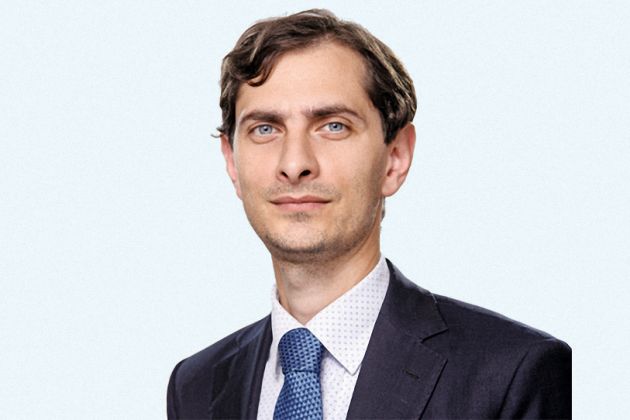 Dmytro Marchukov, Senior Partner at INTEGRITES
Dmytro Marchukov, Senior Partner at INTEGRITES
"Despite the logistical and other challenges faced by most Ukrainians, and law firms in particular, it is important for Ukrainian lawyers to be where the legal community from around the world gathers. In these challenging times, those of us who manage to make it to the IBA Annual Conference need to be ambassadors for Ukraine. Especially given that Russian lawyers also attend. As well as various Putin's fingers from other countries, with whom we sometimes need to talk about what is fair and what is not.
At the open business meeting of the IBA Judicial Committee, I made a presentation on an international project, in which the IBA is also involved, which aims to develop recommendations for improving the selection and appointment of judges of national courts (a chronic issue for Ukraine). We already have confirmation that during the next annual conference in Toronto, the working group of this project, which I also joined, will report on the progress made by the end of 2025."
–– Traditionally, an integral part of the IBA Annual Conference is the IBA Board meeting. What issues did the members of the IBA governing body discuss this time?
–– The IBA Council discussed important issues facing the global legal community today. The Association continues to take a leading position in addressing critical issues such as the impact of artificial intelligence on the legal profession, the development of ESG approaches, gender equality and the promotion of young lawyers. These topics remain at the center of the IBA's attention as they shape the future of the legal profession in a rapidly changing environment.
On behalf of the Ukrainian Bar Association and all Ukrainian lawyers, I expressed my deep gratitude to the leadership of the IBA and IBAHRI for their unwavering support in promoting the rule of law in Ukraine. Among other things, this support includes important initiatives such as monitoring war crimes trials, collecting evidence through the eyeWitness to Atrocities app, and providing legal aid through the UBA's specialized hotline.
In addition, I was honored to inform the Council members about the establishment of the UBA Human Rights Institute, a new stage in our ongoing efforts to protect and promote human rights in Ukraine and beyond.
 Nazar Chernyavsky, Partner at Sayenko Kharenko
Nazar Chernyavsky, Partner at Sayenko Kharenko
"As expected, this year's IBA conference covered a lot of topics related to the use of artificial intelligence in various fields and approaches to its regulation. Since I have been co-chairing the IBA Technology Law Committee since the beginning of this year, I have been more involved in discussing issues related to new technologies. And here, for the first time, the regulation of military and dual-use technologies, the specifics of their transfer and the initiatives of states to introduce additional restrictions in this area have become particularly relevant. In addition, it was interesting to hear about the specifics of using AI in medicine, the financial sector, the judiciary, and during compliance audits.
There is so much interest in the novelty of AI regulation that our section will be hosting a specialized conference on artificial intelligence in Milan in November to discuss the more practical aspects of AI. Moreover, representatives of our committee have been asked to participate in sessions organized by the International Trade, Criminal Law, Law Firm Management, Agricultural Law and even Energy Committees at next year's annual conference in Toronto. It seems that lawyers in all areas of law have already experienced or are expecting to experience the effects of new technologies."
–– What were your overall impressions of IBA Annual Conference 2024? What insights did you take away from this event? What interesting people did you meet?
–– My impressions of the IBA Annual Conference 2024 are very positive. Fortunately, Ukraine continues to be in the focus of the international legal community, and the sessions dedicated to Ukraine are always full. This proves that the topic of war and violations of international law is of great interest and support in the world.
However, unfortunately, one can often hear comparisons between Russia's war against Ukraine and the Israeli-Palestinian conflict, which, in my opinion, is not entirely correct. It is important to convey to the international community the true reasons for Russian aggression. This is not a war for territory, people, faith, or natural resources, but the struggle of the Russian empire for its historical heritage, which is rooted in its imperialist ambitions. The atrocities we are witnessing today are sadly reminiscent of the Middle Ages.
In addition, I had the opportunity to meet many old friends and meet new friends of Ukraine, such as Ambassador John Sullivan and actor and active supporter of Ukraine Liev Schreiber. Their support and involvement in events related to our country is extremely important and inspiring.
–– How do you see the future of the Ukrainian legal community in the context of global challenges for the world and the challenges faced by Ukraine because of the war? And what role should the UBA play in this future?
–– I see the future of the Ukrainian legal community in its enhanced integration into the international legal community and its active participation in addressing global challenges. The war that Ukraine is facing not only poses national challenges, but also allows us to reach a new level in the global legal sphere. We have unique experience in such matters as investigating war crimes, protecting human rights during armed conflict, fighting corruption in times of crisis, and ensuring the rule of law in the face of fierce pressure from Russian propaganda.
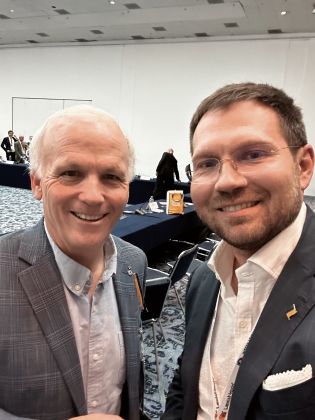 Global challenges, such as the introduction of artificial intelligence, the increasing role of ESG in business, gender equality and the transformation of the legal profession for future generations, will certainly affect us. However, Ukrainian lawyers are already demonstrating the ability to adapt to new conditions and play an active role in these processes.
Global challenges, such as the introduction of artificial intelligence, the increasing role of ESG in business, gender equality and the transformation of the legal profession for future generations, will certainly affect us. However, Ukrainian lawyers are already demonstrating the ability to adapt to new conditions and play an active role in these processes.
The Ukrainian Bar Association should be a driving force in this future. Its role is not only to protect the professional interests of lawyers, but also to ensure that the Ukrainian legal community is at the forefront of global processes. The UBA should continue to work to strengthen the rule of law in Ukraine, support legal system reforms and be an active participant in international discussions.
It is also important for the UBA to help young lawyers develop their skills and knowledge so that they can respond to global challenges and represent Ukraine internationally. The UBA can be a platform for sharing experiences and supporting new leaders who will be ready to work towards a more just world despite the difficulties caused by war and global change.




